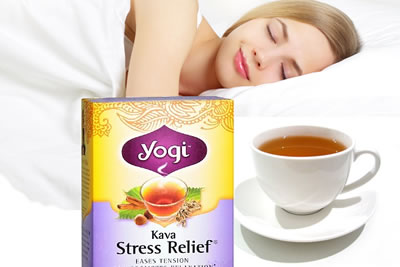Kava is a herbal remedy that can be used for anxiety, stress, depression and insomnia.
Kava (Kava-kava, Piper methysticum) is a herb in the pepper family. It is native to the islands of the Pacific. The roots of Kava have been used to produce a beverage in the Pacific islands for thousands of years. Kava is consumed in the Pacific Ocean cultures of Polynesia, Vanuatu, Melanesia, Hawaii, Samoa, Fiji, Pohnpei and some parts of Micronesia and Australia.
Kava has sedative and anesthetic properties. In modern studies, kava has been shown to help ease anxiety, depression, stress as well as insomnia. Scientists found that kava contains kavalactones, which is effective to relieve anxiety. Dried kava root contains about 15% kavalactones. Effects of kavalactones include mild sedation, a slight numbing of the gums and mouth, and vivid dreams. Kava has similar effects to benzodiazepine medications, including muscle relaxant, anaesthetic, anticonvulsive and anxiolytic effects. It improves cognitive performance and promotes a cheerful mood. A kava drink can promote a deep, restful and dreamless sleep.
How to use kava
Fresh kava is better than dried one, it produces a stronger effect than dry kava. Chewing fresh kava produces the strongest effect. Traditionally, fresh kava is pounded with a little water to produce the extract. The extract can be added to cold water to make a drink.
Kava can be dried to make a powder. The kava powder can be used to make a beverage. Here is how to make a kava tea in your kitchen:
– Dried kava powder 1-2 teaspoons
– Hot Water (not boiling water) 1 cup
– Soak the powder in the water
– Allow to steep for 30 minutes
– Strain
– Drink it
Tips: You can use milk or coconut juice instead of water, and add sugar, lemon, or other ingredients to the drink to improve flavor. Do not use boiling water.
There are many kava products in the supplement market sold in forms of powder, capsules or extract liquids. It is advised that dosages should be kept as low as possible. Follow the instructions on the label of the product before using it.
Side effects of kava
Consuming kava is much like consuming alcohol – when taken in moderate doses, it usually has no side effects to healthy people. But its abuse can cause health problems.
Kava has a potential for addiction. Heavy abuse of kava may cause liver damage, shortness of breath, dry scaly skin, and itchy throat. If you have liver disease, you should avoid kava.
On March 25, 2002, The Food and Drug Administration (FDA) in the United States advised consumers of the potential risk of severe liver injury associated with the use of kava-containing dietary supplements.
Kava trade was banned in the EU due to accusations. But in November 2008, the EU announced its lifting of the kava trade ban based on the scientific review of the facts.
References
- Kava extract for treating anxiety, Pittler MH, Ernst E (2003), Cochrane database of systematic reviews (Online)
- Enhanced cognitive performance and cheerful mood by standardized extracts of Piper methysticum (Kava-kava), Thompson, R et al. (2004). Hum Psychopharmacol. 19 (4): 243–250
- Consumer Advisory: Kava-Containing Dietary Supplements May be Associated With Severe Liver Injury, March 25, 2002, www.fda.gov/Food/ResourcesForYou/Consumers/ucm085482.htm



